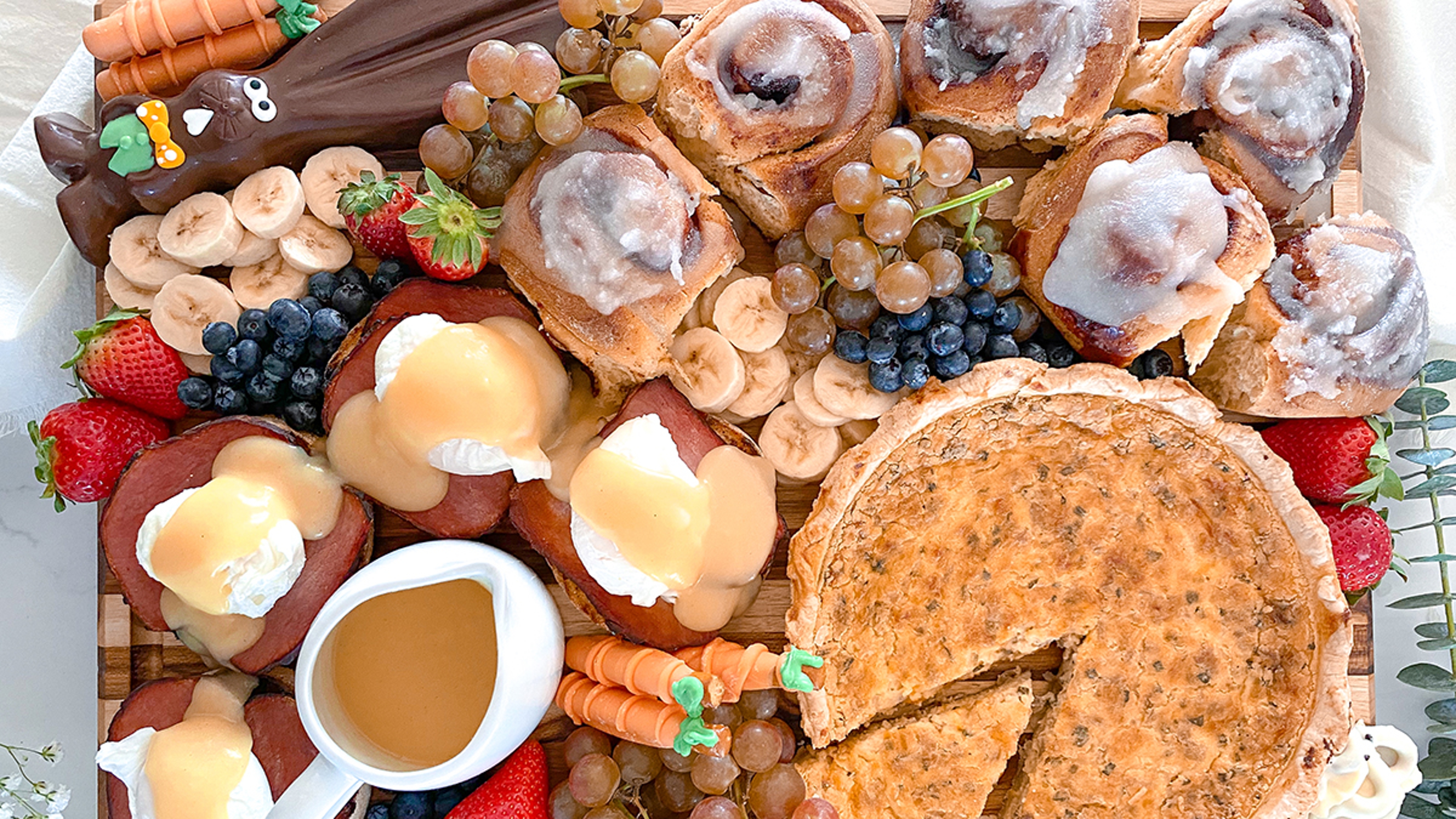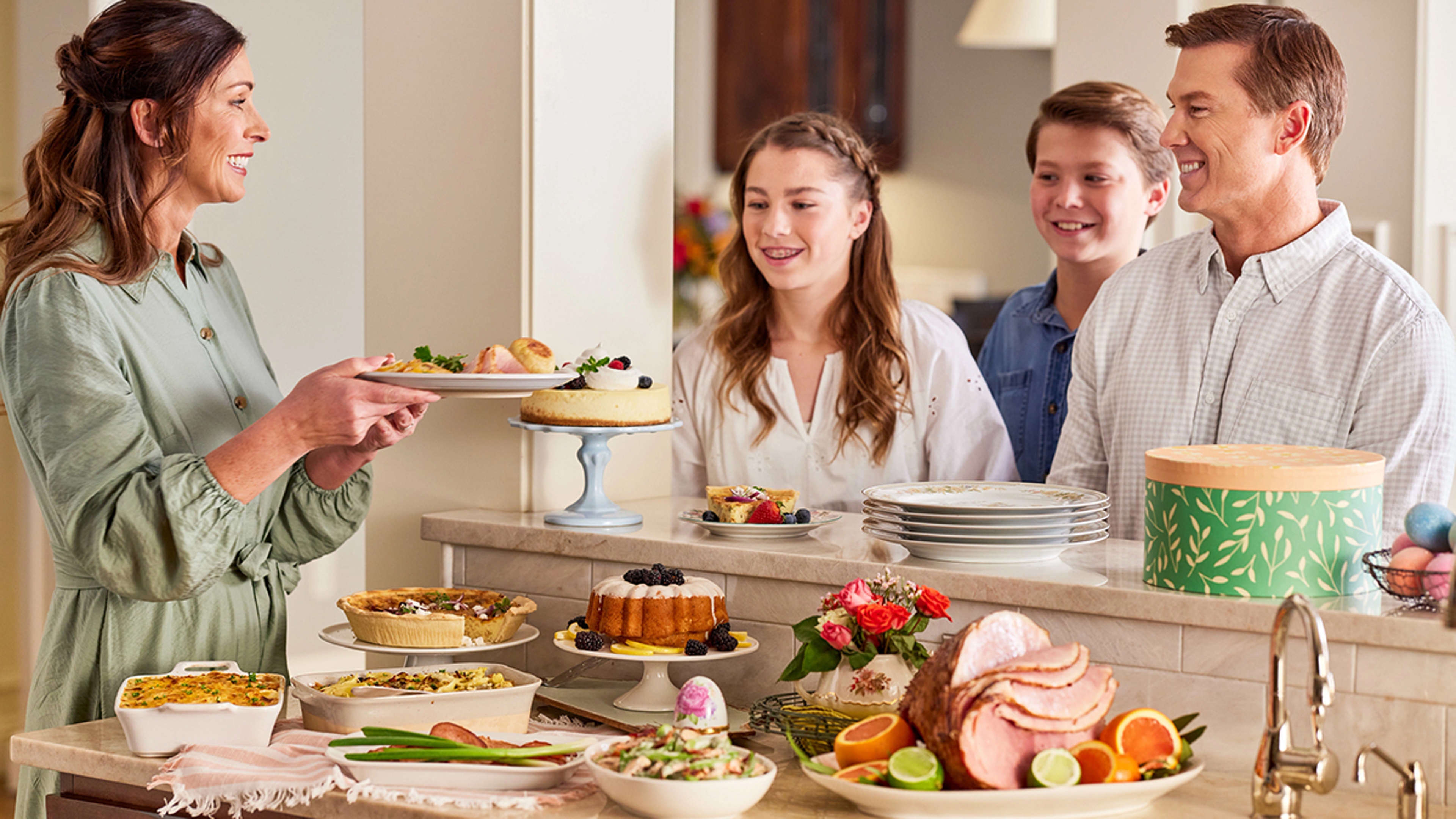The most important Christian holiday of the year, Easter marks Jesus's resurrection and appropriately coincides with the arrival of spring, the season of rebirth. The holiday is a time to celebrate fundamental beliefs and the change of seasons.
Countless traditions commemorate the Easter season, from decorating and hiding eggs to filling baskets with chocolate bunnies. It's also a good time to revisit your décor — and fill your home with the flowers and colors of spring — in advance of the traditional Easter dinner.
Here are some frequently asked questions about Easter, plus several fun Easter facts.
In 2022, Easter is on Sunday, April 17. The date changes every year because the holiday falls on the first Sunday after spring's first full moon. In 2023, Easter is on April 9. In 2024, it's on March 31.
Easter takes place after the 40-day period of Lent, a time when people typically fast during the day or give up something they enjoy. The week before Easter is considered “Holy Week." Palm Sunday takes place exactly a week before Easter, followed by Good Friday, and then Easter Sunday.
The first story about a rabbit coming to your backyard in early spring and leaving eggs in the garden was published in Germany in 1680. The Easter bunny was introduced to the Americas in the late 17th century by Christian German immigrants who settled in Pennsylvania. They told their children stories about the Oschter Haws (or Osterhase), a hare from German folklore that gave colorful eggs to well-behaved children on Easter. The character evolved into the Easter Bunny.
Easter lilies are the official flower of Easter and symbolize the resurrection of Christ. It's also believed that the large, white flowers described in the Bible as growing quickly throughout Palestine were lilies.
Each year, Americans are estimated to spend nearly $21.6 billion on Easter candy. An estimated $5.36 billion will be spent on candy for Easter baskets, and more than 70% of that candy is chocolate.
Chocolate bunnies account for 58% of Easter basket spending, followed by candy and stuffed animals. (Easter falls just behind Halloween and is the second biggest holiday for purchasing candy in the U.S.)
A WalletHub study found that 78% of Americans think you should start eating a chocolate bunny at the ears. But watch out for your teeth: One of the main reasons for the hollow inside is so that people don't hurt their jaw or crack a tooth.
In 2017, the world's largest chocolate bunny was created in Brazil — it weighed an astonishing 9,359 pounds and stood nearly 15 feet tall. The tallest Easter egg ever created weighed 15,000 pounds and was 33 feet tall.
Spring is often used to represent new life and birth while eggs have long symbolized fertility. Given the time Easter occurs and the religious meaning behind it, eggs quickly became a popular Easter symbol.
Before chocolate cornered the Easter food market, pretzels were eaten and exchanged as gifts. During the week leading to Easter, it's estimated that Americans eat around 16 million jelly beans. Traditional Easter Sunday dinner foods include ham, cut pineapple, lamb, string beans, glazed carrots, deviled eggs, hot cross buns, lemon bars, babka, and carrot cake.
In an egg roll, children roll an egg through the grass with a long-handled spoon. The activity dates back hundreds of years and may have originated to symbolize the rolling away of the rock from Jesus's tomb after his crucifixion.
The White House's annual Easter Egg Roll began in 1878 during the Hayes administration. Children and their families are invited to the president's home for egg hunting, rolling, and other festivities. It takes place the Monday after Easter Sunday.
.svg?q=70&width=384&auto=webp)







